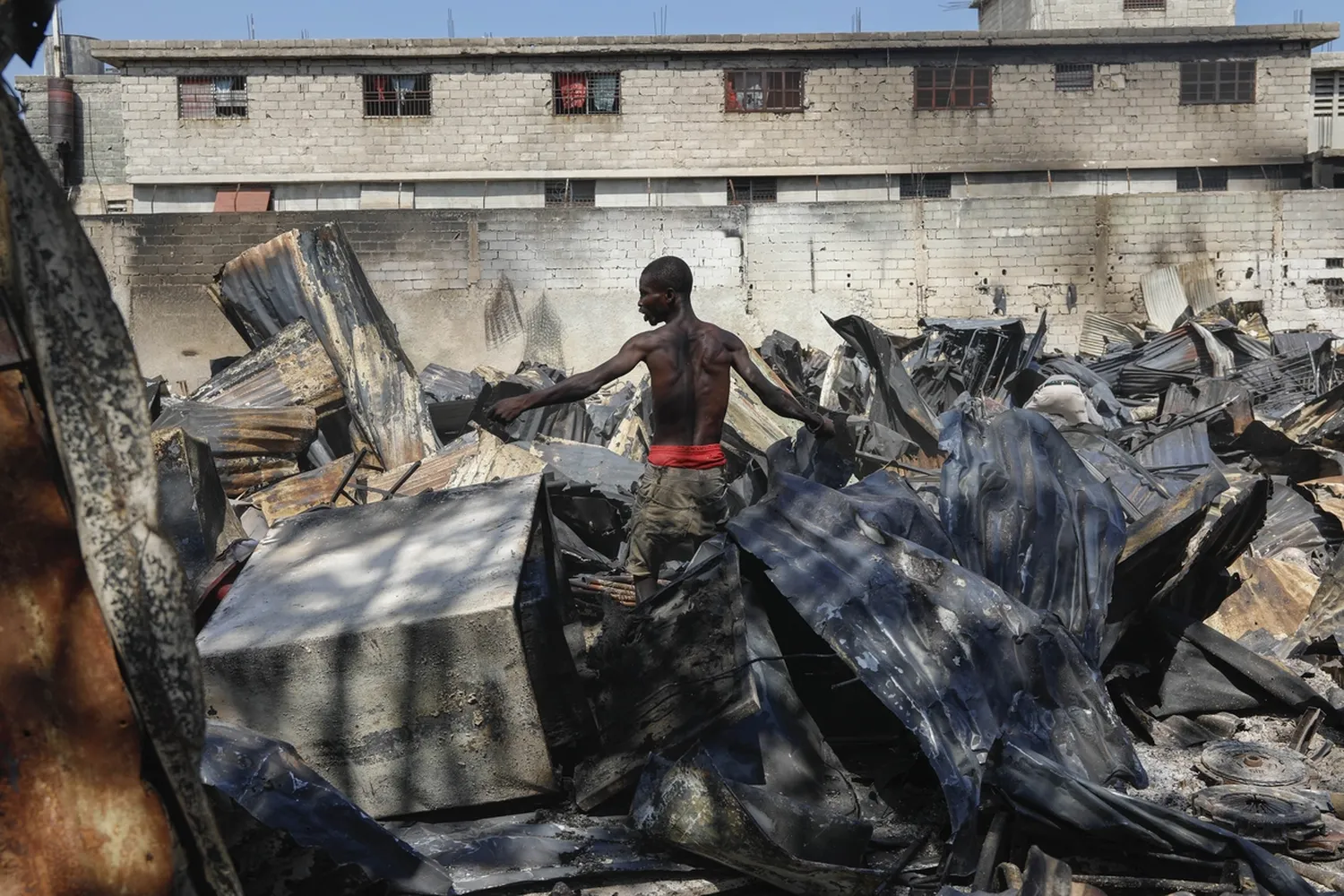Gang Violence
Haitians Scramble for Essentials Amidst Gang-Strangled Capital
In the shadow of escalating gang violence, the people of Haiti are facing a dire struggle for survival as they contend with acute shortages of food, water, and a collapsing sense of security. The capital, Port-au-Prince, once the bustling heart of the nation, is now throttled by gang warfare that has claimed over 1,500 lives this year alone, according to the United Nations Human Rights Office.
The surge in violence has been catastrophic, with heavily armed gangs launching attacks on police stations, the international airport, and even the seaport. The resignation of Prime Minister Ariel Henry has done little to quell the chaos, leaving a power vacuum that gangs are eager to fill. The United Nations has documented a staggering 4,451 killings last year, with 1,554 fatalities recorded through March 22 of this year. The violence has not only claimed lives but has also displaced more than 50,000 people from Port-au-Prince in just three weeks, as reported by the UN's International Organization for Migration (IOM).
The humanitarian crisis is exacerbated by a severe food scarcity, with the U.N. food agency's director in Haiti sounding the alarm bell over the acute food insecurity faced by 4 million people. The situation is so dire that one million Haitians are a step away from famine. The World Food Programme (WFP) has been providing hot meals to the newly displaced, but the agency's warehouse is on the brink of running out of supplies unless the port reopens to replenish stocks.
The economic ramifications of the gang violence are profound. The main port's closure has stranded containers filled with critical items like food and medical supplies. Haiti, which relies on food imports for half of its food supply, is witnessing soaring food prices, with a 10% jump in recent days due to the gang violence. The rural economy, dependent on links to Port-au-Prince, is also suffering as trade is disrupted.
The gangs' stranglehold over the capital has led to a near-collapse of the healthcare infrastructure, with hospitals overwhelmed and under-resourced. The violence has also sparked a severe humanitarian crisis, with food shortages and a healthcare system on the brink of collapse. The first three months of 2024 alone have seen 1,554 people killed and 826 injured, with rampant sexual violence and the recruitment and abuse of children by gangs adding to the horrors faced by the population.
Despite an international arms embargo aimed at stemming the violence, a reliable supply of weapons and ammunition continues to flow across Haiti's porous borders. The UN report has called for tighter national and international controls to stem the trafficking of weapons and ammunition to the Caribbean country.
The crisis in Haiti is not only a matter of security but also of basic human needs. Access to water and sanitation is vital, yet the World Bank reports that only 43% of Haiti’s rural population had access to basic drinking water supplies in 2020, a decrease from previous years. The upkeep of water supply systems is a significant challenge, with only 51% of improved water sources facilities working in 2022.
The international community has responded with calls for urgent deployment of a Multinational Security Support Mission to help Haiti's police end the violence. Kenya, which agreed to lead the UN-approved mission, has put its plans on hold until a transitional council is in place.
As the country grapples with this multifaceted crisis, the resilience of the Haitian people is being tested like never before. With the capital in the grip of gang warfare, the nation's future hangs in the balance, and the need for a coordinated international response has never been more urgent. The people of Haiti are crying out for help, and the world must listen before it is too late.

